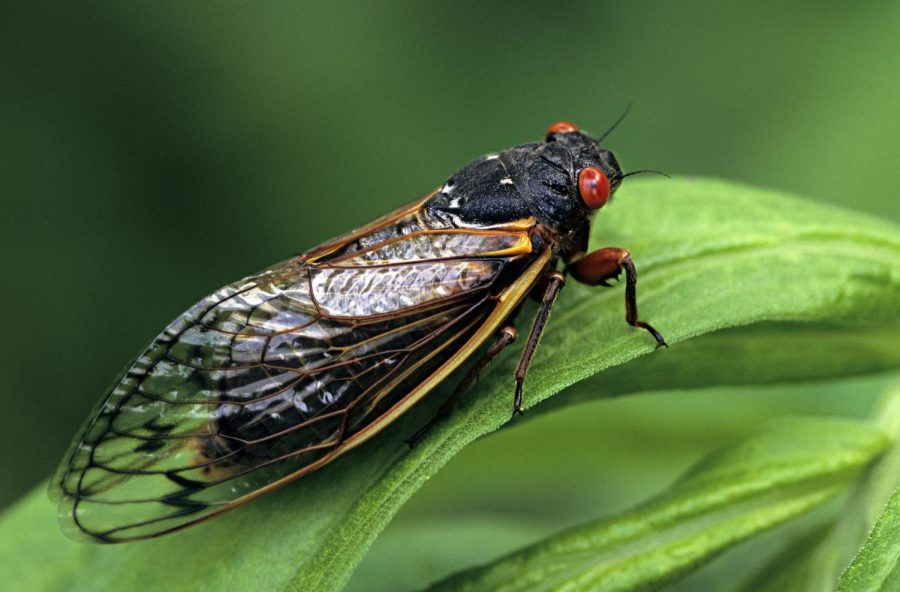Are Cicadas a Nuisance or a Benefit?
An incessant buzz rings in your ears. Vacant shells crunch under your feet. Alien-like creatures fill the air.
No, I am not describing a nightmare; I am describing the reality that is a cicada-filled summer. Brood X, one of the largest groups of 17-year cicadas, is expected to emerge from its underground dwelling this May or June. As these insects make their appearance, we will be forced to endure the deafening mating calls that can reach 100 decibels, the hundreds of exoskeleton shells that are shed by emerging nymphs, and the many insects that land on our heads. Don’t get me wrong, as someone with an intense fear of bugs, I hate cicadas as much as the next person. However, despite the annoyances that accompany these insects, I have come to value their benefit on the environment around us.
One of these benefits is the cicadas’ participation in the circle of life. According to the U.S. Environmental Protection Agency (EPA), “cicadas are a valuable food source for birds and other predators.” Cicadas reproduce in large numbers in order to survive predation, which presents a feast for birds and other consumers. As the food supply for birds increases, the food supply for predators that eat the birds subsequently increases too. Therefore, cicadas introduce a boost in food energy to many populations.
Furthermore, another benefit cicadas pose to the environment is their ability to improve the soil. Cicadas have the ability to “aerate lawns and improve water filtration into the ground” (EPA). Cicadas build underground tunnels that increase the amount of oxygen and water that diffuses into the soil. This aeration and filtration improves root growth and promotes healthy plants. Also, “cicadas add nutrients to the soil as they decompose” (EPA). As decomposers break down the bodies of dead cicadas, important nutrients such as nitrogen and carbon are released into the soil, which is beneficial for plant growth.
Another way cicadas help the environment is by pruning trees. Female cicadas lay their eggs on the weak branches of trees, and these small branches die and fall off the tree. This acts as pruning for the tree, which eliminates dead or damaged branches and improves the tree’s overall health. Pruning encourages the branches to grow back stronger and healthier, benefitting the tree in the future.
Although cicadas can act as a nuisance and are frightening to look at with their beady red eyes, they help the environment around them. Their long-lasting benefits to other organisms make up for their temporary inconveniences. While I will still scream and violently swat the air if one lands on me, I can now put my short-lived discomfort in perspective. I may never love these insects, but I have grown to appreciate them; maybe you can too!

Lauren is a senior and a third year member of the Crimsonian staff. She is involved in cheerleading, Sparkle, Best Buddies, and National Honor Society.






